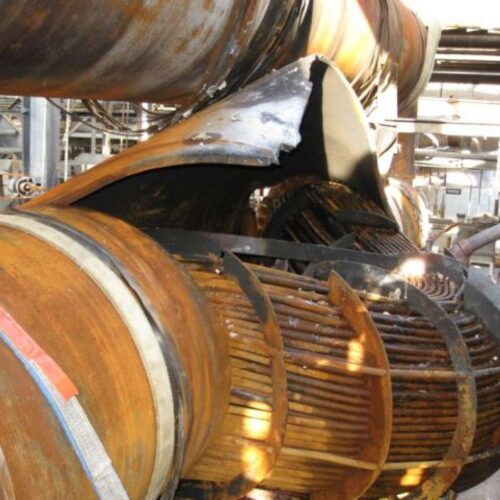Introduction
One year after an explosion killed seven workers at Tesoro Corp.’s oil refinery in Anacortes, Wash., the government is urging the industry to make the safety investments that might prevent similar tragedies.
The U.S. Chemical Safety Board, an independent federal agency that is investigating the Anacortes blast, chose the anniversary to urge oil companies to take more aggressive action to improve refinery safety. “Serious incidents at refineries continue to occur with alarming frequency,” said the board’s chairman, Rafael Moure-Eraso.
The board urged companies to maintain and inspect equipment and to identify and correct problems before they lead to catastrophes. The recommendations echo concerns raised by regulators, unions and safety specialists in a recent Center for Public Integrity investigation, which found that many of the nation’s refineries are plagued by often-preventable accidents, in part because of regulatory failures and a tendency to push aging equipment to the breaking point.
“These preventable accidents take lives and disrupt communities and interrupt the flow of vitally needed energy supplies,” Moure-Eraso said. “As we remember the workers whose lives were cut short, I urge companies to make the necessary investments to ensure safe operations.”
Representatives from two oil industry trade associations did not respond to requests for comment.
In his statement, Moure-Eraso emphasized the need to take seemingly minor problems seriously. The Center’s examination found that, since the beginning of 2009, there have been at least 80 fires at refineries. Even small fires and minor chemical releases may signal weaknesses that could lead to more serious accidents, according to the American Petroleum Institute.
Moure-Eraso also stressed the need for thorough inspections of crucial equipment. The Center’s investigation found that, over the past decade, equipment failure was blamed for about half of the roughly 7,600 accidental chemical releases from refineries reported by companies to the U.S. Coast Guard’s National Response Center.
Equipment failure was at the root of the Tesoro explosion. The piece of equipment that blew apart was almost 40 years old. At the time of the accident, the welds that popped had not been inspected using a sophisticated method to detect cracks since 1998, according to an investigation by state regulators.
Moure-Eraso said recent tests revealed microscopic cracks in the piece of equipment that exploded, known as a heat exchanger. “Preliminary findings indicate that the company did not adequately maintain the exchanger over the years,” he said.
In a statement to the Center, Tesoro spokesman Mike Marcy said the company agrees with the board about the specific mechanism that caused the accident, but added: “We disagree, however, with the chairman’s characterization of Tesoro’s operations at Anacortes. The heat exchanger was maintained and inspected in accordance with regulations and industry standards. We continue to cooperate with the CSB and look forward to clarifying the facts as the Board completes its investigation and prepares a final report.”
Tesoro is facing a proposed fine of nearly $2.4 million for 44 violations alleged by state regulators, who said the company “disregarded a host of workplace safety regulations, continued to operate failing equipment for years, postponed maintenance [and] inadequately tested for potentially catastrophic damage.” The company has appealed.
Many of the industry-wide concerns raised in the board’s statement echo the formal recommendations it issued more than four years ago following its investigation of the 2005 explosion at BP’s Texas City refinery, which killed 15 people and injured at least 180. The board is tasked with investigating serious chemical accidents, but it can only recommend – not compel – changes.


Join the conversation
Show Comments